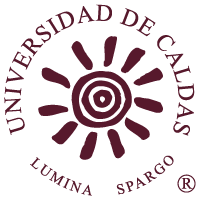| dc.contributor.author | García Lirios, Cruz | spa |
| dc.contributor.author | Martínez Muñoz, Enrique | spa |
| dc.contributor.author | Quintero Soto, María Luisa | spa |
| dc.date.accessioned | 2018-07-01 00:00:00 | |
| dc.date.accessioned | 2023-04-30T15:03:38Z | |
| dc.date.available | 2018-07-01 00:00:00 | |
| dc.date.available | 2023-04-30T15:03:38Z | |
| dc.date.issued | 2018-07-01 | |
| dc.identifier.issn | 0123-4471 | |
| dc.identifier.uri | https://repositorio.ucaldas.edu.co/handle/ucaldas/19186 | |
| dc.description.abstract | Objetivo. El clima laboral ha sido estudiado como un área inherente al liderazgo. En el caso del que se distingue por su comunicación y motivación vertical, el ambiente de trabajo ha sido considerado como un factor determinante de la flexibilidad en términos de condiciones, salarios y beneficios. En este sentido, el objetivo de este documento ha sido explorar las dimensiones del clima y la flexibilidad laboral para establecer las relaciones de dependencia entre sus indicadores. Se realizó un estudio no experimental, transversal y correlacional con una selección de muestras no probabilística de 300 empleados del centro de México. El clima laboral determina la flexibilidad, aunque la literatura más reciente advierte que más bien el clima media la relación entre las políticas de flexibilidad sobre la rotación de personal, el salario informal y la ausencia de beneficios. Se recomiendan líneas de investigación sobre la incidencia de los estilos de liderazgo en las variables en cuestión. | spa |
| dc.description.abstract | Objective. Gross mode, the work climate has been studied as an area inherent in leadership. In the case of the one that is distinguished by its communication and vertical motivation, the work environment has been addressed as a determinant of flexibility in terms of conditions, salaries and benefits. In this regard, the objective of this paper has been to explore the dimensions of climate and labor flexibility in order to establish the dependency relationships between its indicators. Methodology. A non-experimental, cross-sectional and correlational study was carried out with a non-probabilistic sample selection of 300 employees from central Mexico. Results and conclusions. The labor climate determines the flexibility, although the most recent literature warns that rather the climate mediates the relationship between the flexibility policies on staff turnover, the informal salary and the absence of benefits. Research lines are recommended concerning the incidence of leadership styles in the variables in question. | eng |
| dc.format.mimetype | application/pdf | eng |
| dc.language.iso | eng | eng |
| dc.publisher | Universidad de Caldas | spa |
| dc.rights | Revista de Antropología y Sociología: Virajes - 2018 | eng |
| dc.rights.uri | https://creativecommons.org/licenses/by-nc-sa/4.0/ | eng |
| dc.source | https://revistasojs.ucaldas.edu.co/index.php/virajes/article/view/3157 | eng |
| dc.subject | flexibilidad | spa |
| dc.subject | clima | spa |
| dc.subject | liderazgo | spa |
| dc.subject | rotación | spa |
| dc.subject | salario | spa |
| dc.subject | flexibility | eng |
| dc.subject | climate | eng |
| dc.subject | leadership | eng |
| dc.subject | rotation | eng |
| dc.subject | salary | eng |
| dc.title | Estructura factorial exploratoria clima y flexibilidad laboral | spa |
| dc.type | Artículo de revista | spa |
| dc.identifier.doi | 10.17151/rasv.2018.20.2.4 | |
| dc.identifier.eissn | 2462-9782 | |
| dc.identifier.url | https://doi.org/10.17151/rasv.2018.20.2.4 | |
| dc.relation.citationendpage | 72 | |
| dc.relation.citationissue | 2 | spa |
| dc.relation.citationstartpage | 55 | |
| dc.relation.citationvolume | 20 | spa |
| dc.relation.ispartofjournal | Revista de Antropología y Sociología : Virajes | spa |
| dc.relation.references | Abreu, M. (2002). Prospective of stock exchange organizations in Mexico. Denarious. 5, 31-54. | eng |
| dc.relation.references | Adenike, A. (2011). Organization climate as a predictor of employee job satisfaction. Business Intelligence Journal, 4, 151-166. | eng |
| dc.relation.references | Alonso, P. (2008). Comparative study of job satisfaction in the administration staff. Journal of Work and Organizational Psychology, 24, 25-40. | eng |
| dc.relation.references | Awargala, R. (2009). An economic sociology of informal work: the case of India. Research in the Sociology of Work, 18, 315-342. DOI: 10.1108 / S0277-2833 (2009) 0000018015. | eng |
| dc.relation.references | Bautista, M., Delgado, M. A., García, C., Valdés, O., Hernández, G., Castro, F. J.,… Trujillo, K. V. (2016). Contrasting a model of organizational culture in community health centers before the dissemination of information on HIV / AIDS from social work. Teaching and Research in Psychology, 21 (3), 248-255. | eng |
| dc.relation.references | Carreón, J. & García, C. (2017). Specification of a model for the study of vocational training and job. International Journal of Advances in Social Science and Humanities, 5 (6), 13-18. | eng |
| dc.relation.references | Carreón, J. (2016). Human Development: governance and social entrepreneurship. Ciudad de México, Mexico: UNAM-ENTS. | eng |
| dc.relation.references | Carreón, J., Bautista, M., García, C., Hernández, G., Sandoval, F. R., Pérez, G.,…Valdés, O. (2016). Reliability and validity of an instrument that measures perceptions of occupational health in migrants from Huehuetoca, State of Mexico. Obets, 11 (2), 569-581. | eng |
| dc.relation.references | Carreón, J., García, C., Morales, M. & Rosas, F. (2013). Labor commitment in the Social Work of the health sector. Invurnus, 8 (2), 15-23. | eng |
| dc.relation.references | Carreón, J., Hernández, J., Bustos, J. M. & García, C. (2017a). Reliability and validity of an instrument that measures the commitment of social workers in healthcare institutions. Crossroads, 26, 69-86. | eng |
| dc.relation.references | Carreón, J., Hernández, J., Bustos, J. M. & García, C. (2017b). Business promotion policies and their effects on risk perceptions in coffee growers in Xilitla, San Luis Potosí, central Mexico. Poiesis, 32, 33-1. | eng |
| dc.relation.references | Carreón, J., Hernández, J., Quintero, M. L. & García, C. (2017). Reliability and validity of an instrument that measures organizational collaboration in a public university in Huehuetoca, central Mexico. Invurnus, 12(2), 9-17. | eng |
| dc.relation.references | Carreón, J., Morales, M., Rivera, B., García, C. & Hernández, J. (2014). Migrant entrepreneur and trader: State of knowledge. Tlatemoani, 15, 1-30. | eng |
| dc.relation.references | Casas, R. (2003). Approach for the analysis of networks and knowledge flows. In M. Luna. (Coord.), Knowledge itineraries: academic forms and content. A network approach (pp. 19-50). Barcelona, Spain: Anthropos. | eng |
| dc.relation.references | Castro, A. (2006). Implicit theories of leadership, context and driving ability. Annals of Psychology. 22, 89-97. | eng |
| dc.relation.references | Chauhan, G. (2014). Development and validation of resource flexibility measures for manufacturing industry. Journal of Industrial Engineering and Management, 7(1), 21-41. DOI: 10.3926 / jiem.655. | eng |
| dc.relation.references | García, C., Bustos, J. M. & Carreón, J. (2017). Exploratory dimensions of social and labor stigma. A Delhi study with undergraduate students. Eureka, 14(1), 55-68. | eng |
| dc.relation.references | García, C., Carreón, J. & Bustos, J. M. (2012). Socialization and labor commitment in social workers of public and private institutions. Humanism and Social Work, 11, 177-192. | eng |
| dc.relation.references | García, C., Carreón, J. & Bustos, J. M. (2017). The occupational health of elderly people in an electoral context of a locality in the center of Mexico. Doxa, 7(12), 36-49. | eng |
| dc.relation.references | García, C., Carreón, J. & Hernández, J. (2014). The professional training of human capital in the civilization of climate change. International Journal of Research in Social Sciences, 10(1), 107-125. | eng |
| dc.relation.references | García, C., Carreón, J. & Hernández, J. (2017). Limits of occupational health models. Study of adherence to the treatment of asthma in migrant elderly workers of the State of Mexico. Management Vision, 16(1), 103-118. | eng |
| dc.relation.references | García, C., Carreón, J., Hernández, J. & Morales, M. (2014). Contrast of a model of labor commitment in public health centers. University Act, 24(1), 48-59 | eng |
| dc.relation.references | García, C., Carreón, J., Hernández, J., Bautista, M. & Méndez, A. (2012). Modeling of sociopsychological variables from the review of the state of the art. Journal of the Faculty of Social Work, 28(28), 13-60. | eng |
| dc.relation.references | García, C., Carreón, J., Hernández, J., Bustos, J. M., Bautista, M., Mendez, A., Morales, M. L. (2013). Compromiso laboral en el trabajo social del sector salud. Medicina Salud y Sociedad, 4(1), 39-58. | eng |
| dc.relation.references | García, C., Carreón, J., Hernández, J., Carbajal, C., Quintero, M. L., Sandoval, F.R., Valdés, O. (2016). Incidence of micro-financing policies on the perception of coffee entrepreneurship and implications for Social Work. Ehquity, 6, 11-36. | eng |
| dc.relation.references | García, C., Valdés, O., Sánchez, R., Elizarraraz, G., Méndez, A. & Hernández, J. (2015). Differences between Internet entrepreneurs with respect to empathy, risk perceptions and use of technological applications. Prospects in Psychology, 2(1), 68-75. | eng |
| dc.relation.references | Guillén, A. (2007). Neoliberal globalization. Ciudad de México, Mexico: UAM. | eng |
| dc.relation.references | Hermosa, A. (2006). Job satisfaction and bournout syndrome in primary and secondary school teachers. Colombian Journal of Psychology, 15, 81-89. | eng |
| dc.relation.references | Kundu, K. (2007). Development of the conceptual framework of the organizational climate. Vidyasagar University Journal of Commerce, 12, 100-110. | eng |
| dc.relation.references | López, E. (2001). Charismatic leadership in organizations? Elements for a reflection on the change in intra- organizational relations. Journal of Social Psychology,16, 97-115. | eng |
| dc.relation.references | Luna, M. (2003). The network as a coordination mechanism and knowledge networks. In M. Luna. (Coord.), Knowledge itineraries: academic forms and content. A network approach (pp. 51- 78). Barcelona, Spain: Anthropos. | eng |
| dc.relation.references | Maruco, M. (2012). Burnout syndrome in pediatricians. Analysis of variables that could enhance the appearance and exacerbation of general hospitals. Magazine Academic of Social Sciences, 16, 1-9. | eng |
| dc.relation.references | Meagher, M. (2003). Regulatory organizations: perceptions of the academic and business sector about their relationships with a network. In M. Luna. (Coord.), Knowledge itineraries: academic forms and content. A network approach (pp. 259-305). Barcelona, Spain: Anthropos. | eng |
| dc.relation.references | Morales, J. (2002). Decay, mortality and organizational experience: strategic management of Mexican organizations in neoliberalism. Denarious, 5, 55-74. | eng |
| dc.relation.references | Omar, A. (2010). Transformational leadership and job satisfaction: the role of trust in the supervisor. Liberabit, 17, 129-137. | eng |
| dc.relation.references | Peschner, J. & Fotakis, C. (2013). Growth potential of EU human resources and policy implications for future economic growth. Working Paper European Commission. DOI: 10.2767 / 79370. | eng |
| dc.relation.references | Piedrahita, D., Angulo, H. & López, H. (2013). Labor flexibility, conceptual analysis and its incidence in Latin American countries, recent debates. Prospective, 18, 221-242. | eng |
| dc.relation.references | Ramírez, H. (2005). Knowledge as a competitive weapon between companies. 117-135. In P. Dorantes., E. Espinosa., I. Guillén., F. Martínez., L. Ureña. & C. Valladares. (Coords.). Analysis, evaluation and management perspective. Ciudad de México, Mexico: UAM. | eng |
| dc.relation.references | Salamat, N., Zahira, N. & Mustafa, L. (2013). The impact of organizational climate on teachers job performance. Educational Research, 2(1), 71-82 http://dx.doi.org/10.5838/ erej.2013.21.06. | eng |
| dc.relation.references | Vargas, J. (2011). Organization of work and job satisfaction: a case study in the footwear industry. Magazine Electronics Nova Scientia, 4, 172-204. | eng |
| dc.rights.accessrights | info:eu-repo/semantics/openAccess | eng |
| dc.title.translated | Exploratory factorial structure climate and labor flexibility | eng |
| dc.type.coar | http://purl.org/coar/resource_type/c_6501 | eng |
| dc.type.content | Text | eng |
| dc.type.driver | info:eu-repo/semantics/article | eng |
| dc.type.local | Journal article | eng |
| dc.type.version | info:eu-repo/semantics/publishedVersion | eng |
| dc.relation.citationedition | Núm. 2 , Año 2018 : Julio - Diciembre | spa |
| dc.relation.bitstream | https://revistasojs.ucaldas.edu.co/index.php/virajes/article/download/3157/2914 | |
| dc.type.coarversion | http://purl.org/coar/version/c_970fb48d4fbd8a85 | eng |
| dc.rights.coar | http://purl.org/coar/access_right/c_abf2 | eng |





